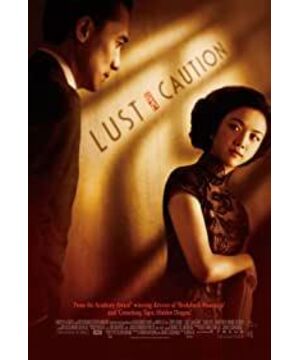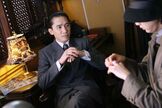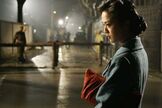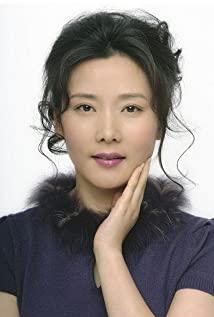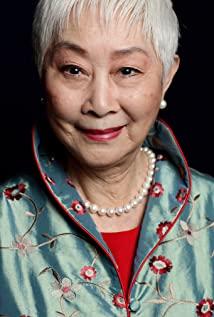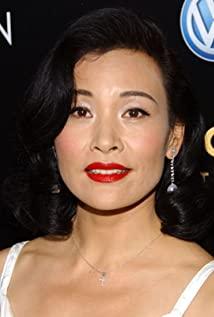(The main body of this article was written ten years ago and was revised and supplemented and reissued)
Among all the works of Ang Lee so far, "Lust, Caution" is one that is inherently different from other films. Whether it’s the previous "Family Trilogy", or "Sense and Emotion", "Crouching Tiger, Hidden Dragon", or "Hulk", "Brokeback Mountain" or "Fantasy Drifting of the Youth School", he is essentially Staying in a rigorous Hollywood-style popular drama framework, with symbols with social and cultural significance as the background, textualized storyline as the core driving force, and unfolding a plot full of contradictions and ups and downs on a typical three-act drama structure conflict.
The most important point here is that although the ending of his film is filled with awkward plot reversals from time to time, the core often returns to the emotional norms guided by a certain ethics. We may smell a trace of Ang Lee’s doubts about these rules and norms or the temptation to be unable to himself ("Crouching Tiger, Hidden Dragon", "Making Woodstock"), but whether it is to confirm them (" Pushing Hands, "Wedding Banquet," Brokeback Mountain") or betrayal ("Diet Men and Women", "Ice Storm", "Fantasy Drifting of Juvenile School"), he always recognized the existence of this value and even the commanding role. Only in "Lust, Caution", with the help of the original author Zhang Ailing's pure individualism, Li Ang tried to question or even deny such moral and ethical value itself for the only time.
What Li Ang may not even realize is that the core charm of his works actually comes from the vague description of the critical area surrounding this core value. Once he starts to disassemble the core basic ideological part of the work structure, Even with all his other emotional, thought, and action expression content and methods that have become systematic routines, they have lost the support they can rely on. So the question about "Lust, Caution" can actually be asked like this: Does Ang Lee have enough personal values and emotional power to support such a subversive plot core? Or we can try to reach the core of Ang Lee's version of "Lust, Caution" with this question: What kind of vision and mentality is he looking at this world of "dead value" (Wang Jiazhi), what he did personally sucker Punch?
Seeing the end of "Lust, Caution", I suddenly remembered the film "Millet and Mullet" by the French director Cosy Xu (Special Jury Award at the 64th Venice Film Festival). In the last scene of that movie, the protagonist, an Arab uncle, is experiencing an unprecedented embarrassment: the first meal in the restaurant is missing. The guests were waiting, the stepdaughter had to go on stage to dance, he went out to find food, the motorcycle was followed by the gangsters, he had to panting and shouting around the river while chasing. At this moment, the subtitles were suddenly blacked out and the movie ended. Nothing has been explained yet, all the characters are still hanging in the air without ending, but at this time the emotional mood of the audience has accumulated to the apex, the power is fully released, and everything else is not important. "Consummation" is essentially not for this kind of film. Prepared vocabulary.
The ending of "Lust, Caution" is just the opposite. It is long and verbose: Wang Jiazhi was stopped in front of the cordon on the rickshaw, the tricycle driver turned around and laughed jokingly, while she reached out and drew out the poison sewn deep in the collar. When the mood is at the climax of the climax, it is an excellent place to abruptly stop. What's disappointing is that the film went on for seven or eight minutes, arresting people, sentenced, executed, and even explained the whereabouts of the diamond ring used to "buy" emotions. Chen Chong and Wang Leehom waited for a group of people to come out and strolled again, only then ended the film by letting Mr. Yi sit on the empty bed.
Ang Lee showed unprecedented procrastination. The completeness of emotions cannot win his favor, and he is reluctant to bear the meaning brought by Wang Jiazhi. In Mr. Yi’s somber gaze, in his memories of Wang Jiazhi, Li Ang repeatedly weighed the value of life: what he or she expects in his life, even from illusory ideals, and he or she wants to obtain it. And the sacrifices made both mentally and physically are disproportionate? Is it really valuable? In layman's terms, when we stand at the end of life and look back, in the life that we initially chose for our own ideas and beliefs, did we make or lose?
In this very soft and weak ending, we seem to faintly feel that Li Ang’s perspective overlaps with Mr. Yi. They become bystanders and begin to examine Wang Jiazhi’s life value: perceptually, they feel sorry for Wang Jiazhi’s efforts and the price paid; From a rational point of view, they are likely to think that this value is no longer meaningful, and that "life" actually "loses" in order to realize it. But they still don't want to admit their loneliness and despair, or the "meaninglessness" of life.
This is probably the effect of the extra few minutes at the end. Ang Lee wants everyone to stand up and affirm Wang Jiazhi once, to encourage appreciation for her sacrifice, feel lost for the blank space she left, and at the same time indicate the life price she paid for her momentary personal emotional impulse (self and others' ). Even Mr. Yi, whose soul is occupied by the devil, has to be dragged back by her tragic death to feel his own loss. However, what is the reason for the "failure" and the reason why the value loses meaning, Mr. Yi or Li An are unable to answer. This logic is not only mixed with fate, but there is also a kind of self-pity that the creators feel spontaneously because they look at each other from the perspective of Mr. Yi and Wang Jiazhi at the same time. So he understood the blind sacrifice of Wang Jiazhi and the cruelty of Mr. Yi at the same time, and through their failures, he gave both selves relief and pity at the same time. Of course, under this kind of treatment, Wang Jiazhi's personal tragic strength as the protagonist was completely softened by the empty bed, and a great emotion instantly fell to the powerless orangutan between people. The extra few minutes of the film gave us an extremely pessimistic feeling of powerlessness.
Another surprise in "Lust, Caution" is that Ang Lee gave Wang Jiazhi and Kwong Yumin's patriotic action in the beginning of the film so facial and routine portrayals, which stretched the background explanation into a lengthy "playing family". "Home" game, and adopted a deliberate and obscure irony (for example, when Kwong Yumin decided to assassinate Mr. Yi, the verse quoted by Wang Jingwei when he was young was "attracting the sword to become a fast, not to lose the young man's head). But again, in On the premise of maintaining the theme of "measuring value", the pale ridicule of more than an hour ago also has an answer: it gave Wang Jiazhi a "moral excuse" for his later contributions. What Li Ang wants to show is that a soul was dazzled and decided In the process of giving himself, he wanted to give Wang Jiazhi a tragic reason for her subsequent sacrifice, and to make her innocence contrast sharply with the mental and physical torture she suffered afterwards, creating a huge contrast, so as to win the audience's maximum sympathy. .
But this time, Ang Lee did not believe in the reasons given by this moral and ethical value. He just wanted to tell everyone what a seemingly beautiful thing made Wang Jiazhi give a precious life. Such losses are irreparable, and are actually "compensated". It is under the control of such contradictory thinking that this period of paleness and emptiness has gone down, saying that it should be beautiful, but in fact it is fatal; saying that it is purely deceptive, it seems that it has changed Wang Jiazhi's contribution. The lightness lost its weight. There is no other way, the creators have to desperately promote this paragraph on the surface, portraying the characters as simple naive and pale, giving their indiscretion a reason for sympathy. But the consequence of it was that this part became outright propaganda, the reason was sufficient, and the emotional power disappeared.
The first half of Wang Leehom’s Kwong Yumin looks like a symbolic walking dead, but also because the end of the last few minutes has found extremely important meaning: he is Wang Jiazhi’s excitement that continues to play a role in the sacrifice. The agent is an important brick that elevates the moral significance of Wang Jiazhi’s behavior. The higher the floor he pushes Wang Jiazhi, the worse the appearance of the latter when he falls. The stronger the meaning he represents, the more prominent Wang Jiazhi’s image of sacrifice and tragic. . Therefore, no matter what he did, whether he talked about the "revolution" principle, whether he looked at the camera sadly or indignantly, and finally kissed Wang Jiazhi affectionately, it was Xiangzhuang's sword dance, aimed at Pei Gong, and it was aimed at the front of the screen. The sitting audience showed them the "meaning" that Wang Jiazhi couldn't resist. The more they could cry and sympathize with Wang Jiazhi having to climb so high and jump down. This may be the true meaning of his name, the homonym "Yu Yumin". But once again, in order to express the symbolic meaning of text symbols, Kuang Yumin himself is completely hollowed out. Whether he still has his reasonable logic of action becomes particularly unimportant.
And Mr. Yi is not the dark side of Wang Jiazhi's opposition. Under Li Ang's treatment, his essence is not a villain, but his soul betrayed to the devil. As for who the devil is, Ang Lee has no intention of discussing, what he wants to show is the meaning of Wang Jiazhi's sacrifice and the power of vain infection it produces. In the Li-An double line of thought, Wang Jiazhi "compensated", but at the same time, accepting this fact in such a realistic manner is tantamount to denying what he has done. And it is this point that Ang Lee is unwilling to face. Therefore, after Mr. Yi showed the devil's side, after torturing Wang Jiazhi in every possible way to make her both mental and physical, he turned into a "contrast" to the meaning of Wang Jiazhi's sacrifice, and the "fruit of battle" saved by her sacrifice. This is a self-contradictory approach, both pessimistic and triumphant, with both mental balance racking their brains and lazy and blindly turning a blind eye. It does not bring hope, on the contrary, it is another destiny, leaving an extremely gray tone in the film: this virtually invisible black hand controls each of us, and even the devil’s minions cannot be freed from it. We Everything that has accumulated in the chest will be destined to have nowhere to be released. "Lust, Caution" solves the small problem of Wang Jiazhi's personal value, and kicks the big problem to the universe.
Ang Li is like an operator in a chemical experiment. Facing a balance with two trays, he says "get" on one side and "pay" on the other. He kept putting weights of two different colors, black and white, on two trays separately, focusing on the weights. At the moment when the result was about to be obtained, he closed his eyes, pressed one hand firmly on the "get" side, and caused the other end of the balance to rise suddenly, and then hurriedly wrote down the result on the test report and posted it on the wall. No longer pay attention to what the true test result is and why.
As spectators, we unconsciously fall into the logic of the balanced cost game designed by Ang Lee, constantly worrying, anxious, and cautious about which side of the game is going to be. Like a businessman who is afraid of losing money, for fear that the appearance of any detail will turn the balance in the opposite direction. This careful measurement is really too much trouble, and it requires a whole-hearted effort. Especially when we want to work hard but the decision-making power is not in our own hands, so we can only leave the theater seats exhausted and extremely uncomfortable after the film is over.
It should be said that bringing Zhang Ailing’s original work to the big screen is a rare opportunity to discuss certain issues that have always puzzled Chinese people: where is "personal emotion" relative to the huge system, or rather In the face of collective pressure, does it show its due strength. In many Chinese literary and artistic works, we can’t find the place for individual emotions; on the contrary, there are many expressions that strongly advocate “collective excitement”, and are constantly excited and excited for a “collective behavior” and a “common goal”, even Can't wait to act.
Humans are group animals and cannot survive without being in society. But how to determine the direction of action of a group is a particularly complicated process. For this reason, human beings even invented a complete set of well-known systems to determine the norms of group actions, but all of this is based on the protection of individual independence. When some people become hot-headed because of "simple excitement," the direction of the group's progress is likely to be manipulated and most people cannot realize it. At this moment, active individual consciousness and individual emotion are the only way to determine one's position in the world and reconfirm the coordinate of the direction of progress.
It is such coordinates that have long lost track in Chinese history. No matter what kind of pain and suffering we have experienced, few people realize that individual emotions and personal judgments can play a role in correcting direction. In fact, we are constantly liberating from one collective excitement, and then throwing into another collective excitement. Even if they are completely opposite in terms of specific action goals, the way we invest is exactly the same, and the consequences they cause are equally serious.
To some extent, Zhang Ailing's novel provides an opportunity for Chinese films to show the power of personal emotions to the will of the group. If we leave the background of the Anti-Japanese War temporarily, whether it is the Kuomintang or Wang Jingwei's "pseudo-government", they are huge state apparatuses, relying on the sacrifice of their own bodies, thoughts, and even emotions in exchange for their own stable existence. Especially when the focus is on Wang Jiazhi, when she throws herself into the brutal and bloody struggle alone as an individual, she is not leaning against one side and hitting the other, but being simultaneously affected by the same two groups in the abstract sense. At the same time, both parties must survive by absorbing the essence of her body and spirit. Maybe she had a specific purpose when she invested in this movement, but lingering under the “machine” that can crush her body and spirit is not enough to awaken her personal emotions?
"Lust, Caution" has nothing to do with the confrontation between light and darkness, let alone a contest between justice and evil, but a vehicle for individuals to show their power to giants. Its weight cannot be measured on the pallet of the balance, nor does it require repeated measurement and comparison to determine its value. The latter is naturally occurring, and the outcome is not determined by the amount, size, tonnage, and weight. Its existence is victory. It was at this most critical point that Ang Li hesitated and softened. Troubled by his own factors, he didn't have the courage to make this judgment, or, because of the influence of traditional Chinese concepts, he didn't realize the true value of the prototype of this story.
But to thank Li Ang, in the second half of the film, he portrayed the contradiction between Wang Jiazhi's body and spirit almost flawlessly. The moment when Wang Jiazhi squeezed the word "Quickly Go" from between his teeth, it became one of the most classic passages in Chinese movies. However, the empty bed where Mr. Yi sits alone at the end makes the main point of the film drift away. Ang Lee's focus is still repeated in the balance of gains and losses. This "go fast" is only Wang Jiazhi's affirmation of what she has paid, and she regained her sense of balance for a moment. But what Li Ang neglected to express was the instant shining of emotional power, even if it was just a momentary gesture, and then people would be wiped out, but in the face of double group pressure, this is still a courage to self-admit. In particular, it does not need and disdain any external force or anyone else to endorse it. To put it bluntly, it means "the fact that I am fine does not require your approval."
The life value of the film creator not only determines the tone of his work, but also determines the structure and method of his organization and presentation of the film, which is the criterion of choice in the creative process. Because of the difference in worldviews, many ways to deal with problems have become reasonable and necessary components from the standpoint of another worldview. This is probably the status quo of Li An's "Lust, Caution". The "hesitancy, abandonment, fate, self-pity, repetitive calculation of gains and losses, and self-locking of spiritual shackles" revealed in the film make it go in another direction of powerlessness and lament. It may reflect Li An's consistent "moderate" thinking: he I saw something, but I didn't have enough courage to face it, so I left a illusion to soothe myself and got a temporary relief. His sensitivity is very moving, but the incompleteness of the last few minutes makes people confused, addicted, and lose courage and judgment.
Most importantly, when Ang Lee consciously began to question and completely abandon the invariable moral criteria for the only time, it was not the strong and infectious personal emotions that replaced it, but the helplessness of losing his coordinates. The characters repeated emotional conversions and cost-benefit comparisons as they were writing year-end audit reports, and the accompanying self-comfort of self-deception and self-deception.
This is actually the most regrettable aspect of Ang Lee's version of "Lust, Caution".
View more about Lust, Caution reviews


